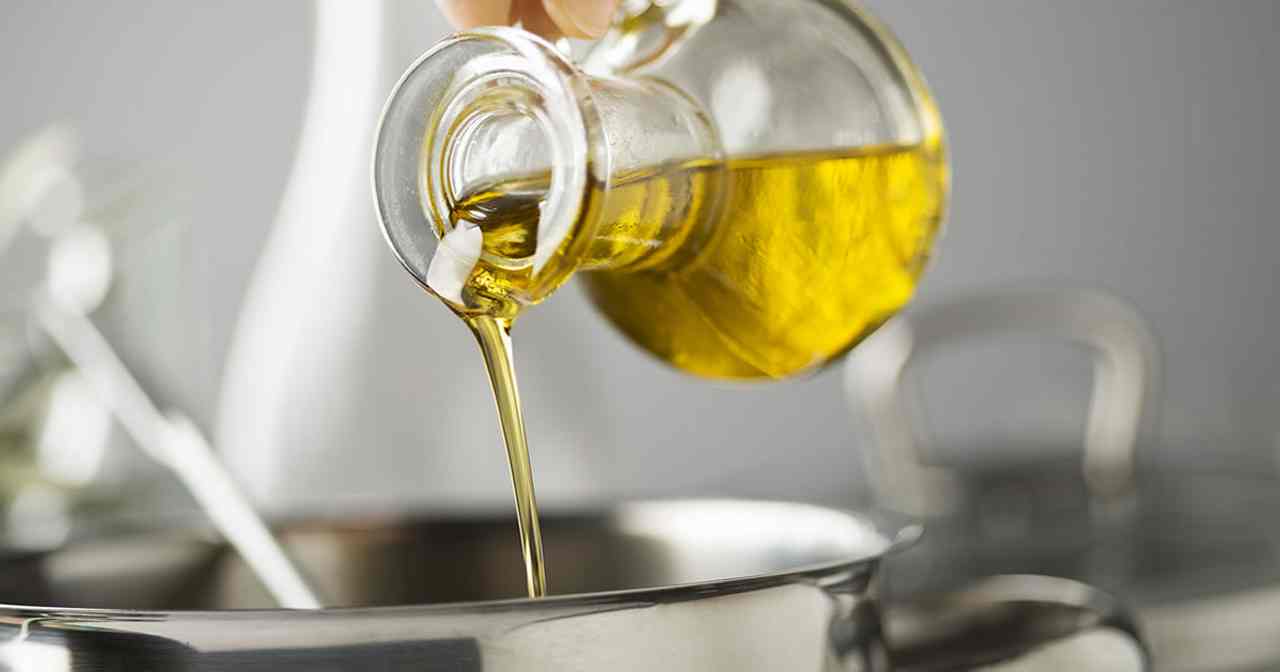
From drizzling to dressing, oils are essential to any chef’s larder. But, with an ever-growing array of cooking oils appearing on supermarket shelves and a wealth of advice on their health benefits and dangers, which are the best ones to choose?
To put it simply, oils are liquid fats we can eat. They are extracted from plants, seeds, fruit and nuts by crushing or pressing, or by the application of further processing and heat treatments. From familiar olive oil to more adventurous varieties like avocado, each oil offers a unique fact file of properties and health benefits. The plethora can seem baffling, but with a little cooking know-how and scientific wizardry, determining the best oil for a dinner that’s healthy and great tasting need not be such a daunting task…
To begin with, it’s worth being clear on the range of oils out there. Familiar to most home cooks is olive oil. This larder staple is widely produced in countries such as Italy and Greece and is obtained by extracting the water from densely crushed olives. Labelling reveals further divisions, with olive oils classed according to how they are extracted from the olive fruit. The finest is unrefined extra-virgin olive oil. Extracted without the use of heat or chemicals, this low acid, golden hued liquid has the fullest taste and heftiest price tag. The character of an extra-virgin oil depends on its place of origin, and its flavourful notes make it best saved for dipping and dressing rather than daily cooking. Plain olive oil, meanwhile, is extracted through refining and blending processes and is much cheaper and far less full-flavoured.
Like olive oil, vegetable oil – which refers to an oil derived from plant sources – must go through refining to be obtained. Typically a blend of oils from plants such as canola, sunflower and soybean, the processed nature of vegetable oil leaves it low in health-boosting nutrients. It has a fairly neutral taste, which makes it a good choice for high-heat cooking.
Sunflower is perhaps the most popular option in the everyday kitchen. With its high smoke point, sunflower oil is ideal for roasting, stir-frying and deep-frying. It is, however, considered one of the least healthy among the oil line-up as it produces high levels of a harmful compound called aldehyde when heated.
This triumvirate of larder essentials are accompanied by an extended family of more specialist oil types. Sesame oil, for instance, is essential in oriental cuisine and offers a fragrant complex making it perfect for zinging up a dish before serving. Nutty-flavoured rapeseed oil is the go-to choice for crunchy roast potatoes and is high in monounsaturated fats and skin-loving vitamin E.
Coconut oil, meanwhile, has been the subject of much debate. A money-spinning fad to some and health savour to others, this on trend oil is solid at room temperature and is fast becoming an essential in dairy-free baking. Its high levels of saturated fat – two tablespoons of the oil contains around 19g – make many steer clear, although some studies suggest that the saturated fat in coconut oil might in fact be beneficial to our overall health.
From walnut to peanut, avocado to flaxseed, there is an almost endless array of oils out there. Each offering their own unique layers of flavour and cooking properties, those bottles of honey-coloured liquid in your cupboard might just be the most exciting ingredients in your kitchen!
In the past, health conscious foodies have avoided fats and oils for fear that they will make them, well, fat. Now, however, we are seeing fats as beneficial rather than bad and are embracing them as a fashionable part of our diet. Whether it be providing energy or ensuring that vitamins are absorbed, fats and oils are absolutely essential to a healthy lifestyle.
The health-boosting properties of each oil type can seem less clear cut. Although all fats are created equal on the calorie counter, providing nine calories per gram, the unique unsaturated and saturated fat structures in each oil mean that they all benefit the body in different ways. And, with research constantly evolving, choosing the ‘healthiest’ oil can seem like nothing other than a mystery.
Understanding the two main types of fat is the best place to start. Fatty acids come in saturated and unsaturated forms, with the second broken down into polyunsaturated and monounsaturated fats. Polyunsaturated fats are found in foods like nuts, seeds, oily fish and plant oils while avocados, olives, olive oil and almonds will give your monounsaturates a boost. Unsaturated fats are the good guys: maintaining healthy levels of HDL cholesterol and reducing LDL cholesterol, they help to reduce the risk of heart disease and stroke. Saturated fat – found in animal products, biscuits and cakes – has the opposite effect on the body’s cholesterol levels.
Oils also differ in the type and degrees of fat compounds they contain. Coconut, as we have already seen, is high in saturated fat, while olive is a good source of healthy polyunsaturated. Individual oils also offer other health perks: sesame oil, for example, helps to reduce cell damage and may support blood sugar regulation through its high antioxidant count, while olive oil is a top source of vitamin E and K.
Fats and oils are our new health heroes. A few staples serve your daily cooking (olive oil) and frying (vegetable oil) needs while more specialist types will enhance the flavour of your favourite foods (flavoursome candidates like extra-virgin olive and sesame). And, with each oil type offering its own medley of nutrients, opting for a well-stocked oil store is the way to go for happy cooking and a healthy body.











